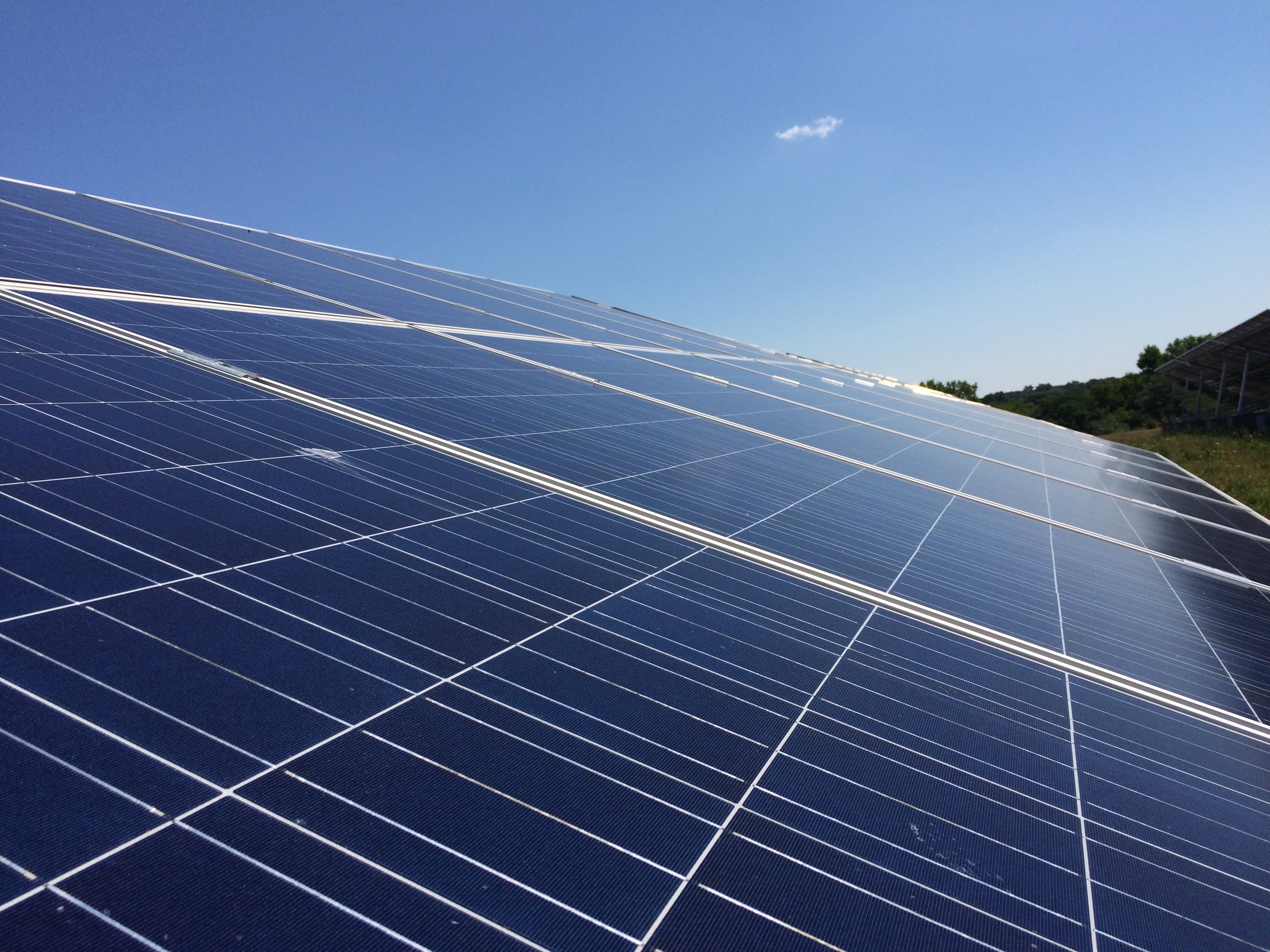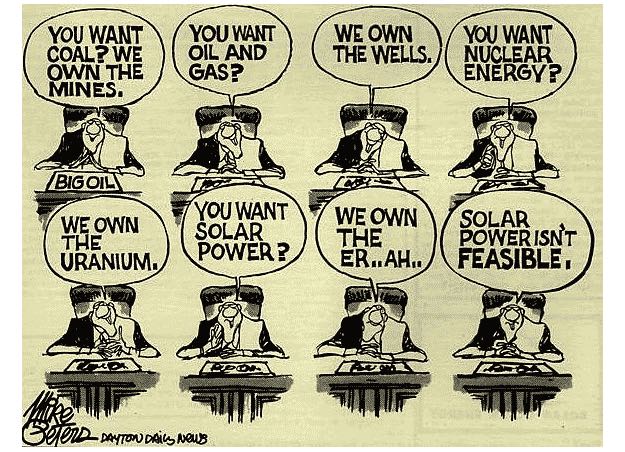Why Solar?

Solar power is a win for our environment, economy, and communities. This quickly growing industry provides low-cost energy, local and family-sustaining jobs, a safe alternative to dirtier and much riskier forms of energy, and a more resilient energy grid for communities facing increasingly severe weather. Despite the persistence of fossil fuel industry proponents to prioritize profits over people and public health, the fact remains that pipelines are expensive, dangerous, and they inevitably leak. Frequent gas leaks and oil spills cause massive, expensive, often irreparable damage to the environment we all depend on for clean water, clean air, healthy food, and a safe climate. In contrast, what does a solar spill look like? It’s a sunny day.
Here are a few facts:
- A mere 1.2% of the land area of the Sahara Desert (about 43,000 square miles) is sufficient to provide our entire global energy needs with solar. That is only at today’s moderate solar panel efficiencies, which continue to improve. If this happened today, it would be a one-time investment of about five trillion dollars. That’s less than the cost of the 2008 bank bailouts. And by the way, many of those banks still finance fossil fuel projects. Does yours? Click here to find out.
- Solar panels generate more than 15X the energy it requires to produce them. That’s compared to a 7X factor for natural gas plants, the fuel from which Massachusetts currently generates most of our electricity.
- Solar is widely seen as an integral part of a 100% renewable energy system for Massachusetts. For example, The Solutions Project model shows solar consistently providing between 25-30% of our state’s electricity demand.
- If we put solar on the 9.6 million acres currently used in our country for coal mining and mountain top removal, we could provide over 100% of the United States electricity demand.
Massachusetts Needs to Continue Solar Leadership
Massachusetts has a robust solar industry, largely due to forward-thinking policies and leadership. Between 2009 and 2017, solar capacity in Massachusetts grew from a mere 10MW to almost 2,000MW. In 2016, the our state was home to over 500 solar businesses and nearly 15,000 employees. However, due to the ever-changing policy landscape some jokingly refer to as the “solar-coaster,” this industry has been forced to constantly adapt, respond, and sometimes unfortunately lose ground. Massachusetts fell in ranking for highest solar jobs per capita, dropping from 5th in 2017 to 7th in 2018. The industry lost over 3,000 jobs, largely due to state policies designed to restrict growth.
 There is no reason for this turbulence and restriction other than the undue influence of large investor-owned utility companies, fossil fuel interests, and a lack of political will to move us forward. But none of this changes the incredible benefits and potential of solar for Massachusetts, and the fact that people want more renewable energy.
There is no reason for this turbulence and restriction other than the undue influence of large investor-owned utility companies, fossil fuel interests, and a lack of political will to move us forward. But none of this changes the incredible benefits and potential of solar for Massachusetts, and the fact that people want more renewable energy.
That's where all of you come in.
Support With Your Voice
Be involved. Get your community involved. Write and call your elected officials, and ask them what they are doing to support rapid growth in solar energy. Why did policymakers allow the solar industry lose 3,000 jobs inside of a single year? Why are we not doing better? Why are our elected officials letting the utility companies dictate solar’s pace of growth while fossil fuel companies try to force unnecessary pipelines through our state? Click here to find your elected officials.
There are many ways you can support solar power with your energy dollars, and with your voice. We elect our policymakers, and we can elect new ones. We can demand that they help the solar industry and renewable energy continue growing. We can transition Massachusetts to 100% renewable energy, and set an example for the rest of the country while we do it.
To learn how you can get involved, contact our State Political Director, Jess Nahigian.
Support With Your Energy Dollars
There are a number of ways Massachusetts residents can support solar (and renewable energy in general) whether or not you own your home. If you pay an electricity bill, you can help.
Not a Homeowner?
Sign up for the "Green Powered" program through Green Energy Consumers Alliance.
Green Energy Consumers Alliance is a grassroots, New England non-profit group we have worked with for years to help advance renewable energy in Massachusetts. Your participation in this program helps install new renewable energy facilities here in New England. Plus, when you sign up through this link, Massachusetts Sierra Club will receive a small donation, meaning you will be supporting our mission in more ways than one!
Find Out If Your Community Has A Green Municipal Aggregation Program.
Over 40 cities and towns in Massachusetts have set up “green municipal aggregation” programs for their residents and businesses. What this means, basically, is that while your utility company remains the same, the municipality is able to negotiate bulk-purchase agreements for the electricity on behalf of all of its residents and businesses. This results in percentages of renewable energy higher than what is required by the state of Massachusetts, and some programs also include an option for you to “opt-up” to 100% renewable. However, not all municipal aggregation programs are “green” programs. Some negotiate bulk prices and unfortunately miss the opportunity to support an increase in renewable energy. To see a list of Green Aggregation programs, and to learn how your town can get one started, visit this helpful page from Green Energy Consumers Alliance.
Interested in Solar Panels on Your Roof or Property?
Surprisingly, only around 1 in 5 homes in Massachusetts is suitable for rooftop solar. Some common reasons are too much adjacent shade, too old of a structure, or not enough south-oriented roof space. Thankfully it is very easy to find out if your home is one of the suitable 20 percent. There are many local companies that can work with you to install solar panels on your home’s roof or property. Rather than suggesting any particular company, we recommend checking out EnergySage. Check their website for the most updated info, but EnergySage is essentially a platform that allows you to remain non-committal while you enter information about your home, and companies then compete against one another to provide the best price and options for your potential solar array.
Additional References
Massachusetts Solar Policy Survey October 2016
Solar Letter to House Leadership from Representatives, March 2016
Massachusetts solar rebates and incentives
Massachusetts Gov. Charlie Baker signs solar net metering bill
Massachusetts energy officials overhaul solar incentive program, cutting cost to ratepayers in half
Solar Power Saves Everyone Money
Solar isn’t the cause of high electricity costs
Understanding Solar Energy Issues in the Commonwealth of Massachusetts